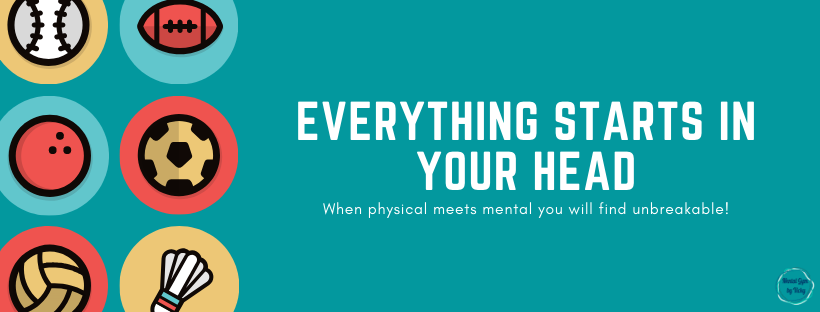When physical meets mental you will find unbreakable. Psychology is a big part of sport that some people do not realize. You do not need to have any psychological problems to meet with a sport psychologist because sport and exercise psychology concentrates on helping athletes break through the mental barriers that are keeping them from performing up to their peak potential.

With the above in mind, first you should understand that sports psychology is really an interdisciplinary science. In order to understand a sport psychology, you need know what is a psychology. We can define it as the study of the human mind and behavior (American Psychological Association, 2020). Psychology is an academic and applied field. Similarly, the sport psychology is an academic (research, teaching) and applied field (consulting). Therefore, sport psychologists pursue varied careers e.g. conducting research, teaching and sport consulting (Weinberg, R. S. & Gould, 2011). The American Psychological Association (APA, 2020) states that sport psychology is “the application and development of psychological theory for the understanding and enhancement of human behavior in sport”. Accordingly, „sport psychologists may work in such specific areas as clinical sport psychology, educational sport psychology, or research sport psychology, depending on their education, training, and focus in the field”.
CAREER IN SPORT PSYCHOLOGY
Today is more career opportunities for sport psychologist than before. However, there is not many available full-time consulting positions, many sport psychologists decide to start with their private service counseling. In my opinion, the most important issue is to be able to combine the academic knowledge and knowledge from counseling as they apply to the practice of applied sport psychology.
Researcher
Some of sport psychologists at a university conduct scientific research. A primary function of that activity is to advance the knowledge within the field by conducting research. Moreover, sport psychologist can be members of multidisciplinary research teams that study problems related to sport psychology. Then they share their results with colleagues and participants in the field. That produces discussion and healthy debate at professional meetings and in journals (Weinberg, R. S. & Gould, 2011).
Teacher
Employment opportunities in sport psychology also may involve teaching. Many sport and exercise psychologists teach university courses e.g. sport psychology, exercise psychology, applied sport psychology or social psychology of sport. Sometimes these specialists might teach courses about personality psychology or developmental psychology (Weinberg, R. S. & Gould, 2011).
Counsultant
Popular role is consulting with individual athletes or teams. The main purpose is to develop psychological skills for enhancing competitive performance (Weinberg, R. S. & Gould, 2011). Some athletes might seek help from a sport psychologist when they have a problem. These complications could be related to anxiety, stress, lack of motivation, communication problems with teammates or coach, controlling the temper or other psychological issues. On the other hand, athletes don’t just consult sports psychologists when they’re having difficulties. Sport psychology is about using theories, principles and techniques taken from psychology to improve the achievements and personal development of people practicing physical exercises and sport. Sport psychologists can also help athletes: improve performance, cope with the pressures of competition, recover from injuries, keep up an exercise program or enjoy sports.
Similar strategies that sport psychologists teach athletes as relaxation techniques, visualization, positive self-talk, mental rehearsals, goal setting or cognitive restructuring – could be also useful in the workplace and other settings.

References
American Psychological Association (2020). APA Dictionary of Psychology. https://dictionary.apa.org/psychology
Weinberg, R. S. & Gould, D. (2011). Foundations of Sport and Exercise Psychology. Fifth Edition. Human Kinetics.
